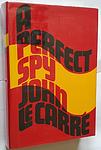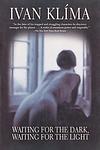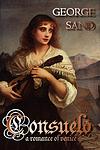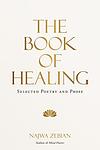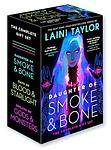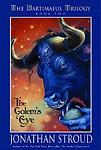The Greatest "Czech Republic" Books of All Time
Click to learn how this list is calculated.
This list represents a comprehensive and trusted collection of the greatest books. Developed through a specialized algorithm, it brings together 284 'best of' book lists to form a definitive guide to the world's most acclaimed books. For those interested in how these books are chosen, additional details can be found on the rankings page.
Genres
Countries
Date Range
Reading Statistics
Click the button below to see how many of these books you've read!
Download
If you're interested in downloading this list as a CSV file for use in a spreadsheet application, you can easily do so by clicking the button below. Please note that to ensure a manageable file size and faster download, the CSV will include details for only the first 500 books.
Download-
1. The Unbearable Lightness of Being by Milan Kundera
Set against the backdrop of the Prague Spring period of Czechoslovak history, the novel explores the philosophical concept of Nietzsche's eternal return through the intertwined lives of four characters: a womanizing surgeon, his intellectual wife, his naïve mistress, and her stoic lover. The narrative delves into their personal struggles with lightness and heaviness, freedom and fate, love and betrayal, and the complexities of human relationships, all while offering a profound meditation on the nature of existence and the paradoxes of life.
-
2. The Good Soldier Svejk by Jaroslav Hašek
"The Good Soldier Svejk" is a satirical novel set during World War I, following the story of a Czech soldier in the Austro-Hungarian army. Svejk, the protagonist, is a simple-minded, good-natured man who is frequently arrested for bungling jobs due to his apparent idiocy. Despite his constant run-ins with authority, Svejk manages to maintain his cheerful disposition and even takes advantage of his perceived stupidity to manipulate the system. The book offers a humorous and critical perspective on the absurdity of war and the incompetence of military bureaucracy.
-
3. Austerlitz by W. G. Sebald
The novel follows the story of Jacques Austerlitz, an architectural historian who was brought to England on a Kindertransport from Czechoslovakia during World War II. As an adult, Jacques embarks on a journey to uncover his past, including his original identity, his parent's fate, and his own lost history. The narrative is a haunting exploration of memory, identity, and the lasting impact of the Holocaust.
-
4. The Book of Laughter and Forgetting by Milan Kundera
This novel is a blend of fiction, autobiography, and philosophical musings that explores the nature of forgetting, the power of laughter, and the struggle for personal and political freedom. Set against the backdrop of the political turmoil in Czechoslovakia in the 20th century, it follows the interconnected stories of various characters, including a man who is expelled from the Communist Party, a young woman in love with a man whose father was a political prisoner, and a couple who flee to America. Throughout, the book delves into the ways in which personal and collective memories shape identity and history.
-
5. Kafka's Other Trial by Elias Canetti
This book is a detailed examination and interpretation of the correspondence between a renowned author and his fiancée, Felice Bauer. The author uses these letters to analyze the writer's psyche, his relationships, and his work. The book provides a unique insight into the author's life and the influence of his engagement on his writing, particularly his novel "The Trial". The author's struggle between his commitment to writing and his relationship with Felice forms the central theme of the book.
-
6. The Joke by Milan Kundera
"The Joke" follows the life of Ludvik Jahn, a man expelled from the Czechoslovak Communist Party, his university, and the army for a harmless joke he sends in a postcard to a girlfriend. The narrative explores his life before, during, and after his punishment, and his attempts to exact revenge on those who wronged him. Set against the backdrop of the Prague Spring and the Soviet Invasion, the novel delves into the themes of political satire, the absurdity of totalitarianism, and the individual's struggle against an impersonal and oppressive system.
-
7. A Perfect Spy by John le Carré
This espionage novel follows the life of Magnus Pym, a high-ranking British intelligence officer who disappears after attending his father's funeral, causing a massive manhunt. As the intelligence service scrambles to find him, the narrative dives into Pym's past, revealing his complex relationship with his conman father and his recruitment into the world of espionage. The story is a complex exploration of betrayal, identity, and the blurry line between loyalty and deception.
-
8. Closely Watched Trains by Bohumil Hrabal
"Closely Watched Trains" is a darkly humorous tale set in Nazi-occupied Czechoslovakia during World War II. It follows the life of a young, inexperienced railway worker who is struggling with his sexual awakening while dealing with the harsh realities of war. The novel is a poignant exploration of the absurdity of life, the tragicomedy of human existence, and the power of ordinary people to resist oppression.
-
9. I Served The King Of England by Bohumil Hrabal
"I Served The King Of England" is a captivating novel that follows the life of a young Czech waiter named Ditie, who dreams of becoming a millionaire and serving the highest-ranking clientele. Set against the backdrop of World War II and the Communist regime, the story takes readers on a journey through Ditie's experiences in various hotels and restaurants, his encounters with eccentric characters, and his pursuit of love and success. With humor, wit, and a touch of satire, the book explores themes of ambition, identity, and the impact of historical events on an individual's life.
-
10. The Engineer of Human Souls by Josef Škvorecký
The novel is a semi-autobiographical narrative of a Czechoslovakian writer who has become a professor at a Canadian university, teaching American literature. The narrative switches between his current life in Canada and his memories of the past in Czechoslovakia, including the Nazi occupation and the Communist regime. The book presents a complex portrayal of the life of an intellectual in exile and the challenges of cultural assimilation, while also exploring themes of love, politics, and the power of literature.
-
11. All But My Life by Gerda Weissmann Klein
"All But My Life" is a poignant memoir of a young woman's six-year ordeal as a victim of Nazi cruelty. The narrative follows her life from a peaceful, upper-middle-class childhood in Bielitz, Poland, through her horrifying experiences and loss during the Holocaust, to her miraculous survival and marriage to an American soldier. It is a story of courage, resilience, and the enduring power of hope.
-
12. Golem by Gustav Meyrink
This novel is a dark and atmospheric tale set in the mystical alleys of Prague's Jewish ghetto. It weaves the story of a man who, haunted by amnesia, embarks on a surreal journey to uncover his identity. Along the way, he encounters a series of bizarre and enigmatic characters, including the mythical Golem, a creature molded from clay and brought to life through ancient Kabbalistic magic. The narrative delves deep into themes of existential dread, mysticism, and the blurred lines between reality and illusion, all while painting a vivid picture of early 20th-century Prague and its rich Jewish folklore. Through its complex plot and haunting imagery, the book explores the depths of human consciousness and the mysteries that lie beyond the surface of the known world.
-
13. Waiting for the Dark, Waiting for the Light by Ivan Klíma
The novel is set in the twilight of Communist rule in Czechoslovakia and follows the life of a television cameraman named Pavel. Despite his dreams of becoming a filmmaker and capturing the truth, he is trapped in a job that requires him to distort it. As the regime starts to crumble, Pavel grapples with the opportunities and challenges that freedom brings. He is forced to confront his past, his moral choices, and his dreams, leading to a deep exploration of the human condition and the struggle for personal and artistic freedom.
-
14. City, Sister, Silver by Jáchym Topol
This novel follows the journey of a young Czech man, Potok, as he navigates the tumultuous period of the Velvet Revolution and its aftermath. The story is filled with surreal and often disturbing imagery as it explores themes of chaos, transformation, and the struggle for identity in a rapidly changing world. Potok's adventures take him from the crumbling infrastructure of post-communist Czechoslovakia to the burgeoning world of Western Europe, and his experiences reflect the larger societal upheaval of the time.
-
15. Living In Truth by Vaclav Havel
"Living in Truth" is a collection of essays and speeches that delve into the moral and existential struggles of living under an oppressive regime. The work explores the nature of power, truth, and individual responsibility in a society where the official narrative often contradicts reality. The author, a dissident playwright turned political leader, argues for the importance of living with integrity and maintaining a commitment to truth as acts of resistance. Through personal anecdotes and philosophical reflections, the text serves as both a critique of totalitarianism and a guide for maintaining one's humanity in the face of systemic deception and coercion.
-
16. Consuelo by George Sand
"Consuelo" is a historical novel set in the 18th century that follows the life of a young and talented Venetian singer of the same name. Born into poverty, Consuelo rises through the ranks of the opera world, thanks to her extraordinary voice and the mentorship of a mysterious maestro. Her journey is not just one of artistic growth but also of personal discovery and moral development, as she navigates the complexities of love, society, and political unrest. Throughout the novel, she encounters a variety of characters, from nobility to revolutionaries, which shape her understanding of justice, equality, and the role of art in society. The book is a rich tapestry of adventure, romance, and philosophical musings on the nature of art and the artist's place in the world.
-
17. Flights by Olga Tokarczuk
"Flights" is a fragmented and philosophical novel that explores the theme of travel and movement. Through a series of interconnected stories and reflections, the book delves into the nature of human existence, the complexities of modern life, and the desire for freedom and escape. With its poetic language and unconventional structure, "Flights" invites readers to contemplate the transient nature of time, the significance of journeys, and the search for meaning in a world constantly in motion.
-
18. Parables, Fragments, Aphorisms by Franz Kafka
This book is a collection of philosophical and existential musings, presented in the form of parables, fragments, and aphorisms. The work delves into the human condition, exploring themes of alienation, guilt, and the search for meaning in a seemingly incomprehensible world. The pieces are characterized by their brevity and depth, often leaving the reader with a sense of the uncanny and the profound. Through metaphor and succinct, thought-provoking statements, the author challenges readers to reflect on their own lives and the larger social and metaphysical systems that govern them.
-
19. Mozart On His Way To Prague by Eduard Mörike
In this novella, the narrative follows the famous composer during a whimsical journey to Prague for the premiere of his opera "Don Giovanni." Along the way, he encounters a variety of characters and situations that reveal his genius, quirks, and humanity. A mix-up at an aristocratic estate leads to a series of amusing and enlightening interactions, showcasing the composer's wit and charm. The story blends historical fiction with a light-hearted tone, offering a glimpse into the life and times of one of classical music's most celebrated figures.
-
20. Selected Poetry by Jaroslav Seifert
This collection is a curated anthology of poems by a Nobel Prize-winning poet, renowned for his lyrical and evocative verse that captures the human experience with a profound simplicity. The poems traverse a range of themes, from love and beauty to the struggles of life in the face of historical turmoil. The poet's work is deeply rooted in the landscape of his homeland, reflecting its cultural richness and the political challenges it faced during his lifetime. His poetry is characterized by its accessibility, emotional depth, and the delicate interplay between personal sentiment and broader social commentary, making it a resonant and enduring contribution to world literature.
-
21. The Russian Debutante’s Handbook by Gary Shteyngart
This novel follows the journey of Vladimir Girshkin, a young Russian immigrant living in New York City, who struggles with his identity and the expectations of his Jewish immigrant family. Desperate to escape his mundane job at the Emma Lazarus Immigrant Absorption Society and an overbearing girlfriend, Vladimir plunges into a world of crime and adventure that takes him from the Eastern European enclave of Little Odessa in New York to the chaotic streets of Eastern Europe. Through a series of misadventures, including dealing with gangsters, corrupt politicians, and a scheme involving a pyramid scam, Vladimir embarks on a comedic and poignant quest for success, love, and a sense of belonging. This debut novel is a satirical and insightful exploration of the immigrant experience, cultural assimilation, and the pursuit of the American Dream.
-
22. Daughter Of Smoke & Bone by Laini Taylor
In a world where the boundary between human and myth blurs, a blue-haired art student in Prague discovers her mysterious past and connection to a war-torn realm inhabited by angels and beasts. As she navigates her life between art school and errands for her chimeric guardian, she uncovers secrets about her identity and a star-crossed love that transcends worlds and species. Her journey reveals the complexities of family, love, and the devastating consequences of old enmities, ultimately leading her to confront her destiny in a battle that could reshape the boundaries of her world and all others.
-
23. The Haunted Land by Tina Rosenberg
"The Haunted Land" is a compelling exploration of the aftermath of communism in Eastern Europe, specifically in the Czech Republic, Poland, and Germany. The book delves into the struggles of these nations as they grapple with their pasts under oppressive regimes, and their attempts to move forward towards democracy. The narrative also examines the moral dilemmas faced by these societies as they confront issues of justice, retribution, and memory.
-
24. Body Of Glass by Marge Piercy
"Body of Glass" by Marge Piercy is a dystopian novel set in a future where technology has advanced to the point where humans can upload their consciousness into artificial bodies. The story follows the life of a woman named Kassia, who is a "shaper" - an individual with the ability to shape and mold her body at will. As Kassia navigates a society obsessed with physical perfection and conformity, she becomes involved in a rebellion against the oppressive government, ultimately questioning the true meaning of identity, freedom, and what it means to be human.
-
25. The Golem's Eye by Jonathan Stroud
"The Golem's Eye" is the second book in the "Bartimaeus Trilogy" by Jonathan Stroud. The story continues with Nathaniel, now a member of the government's ruling class, as he tries to solve a series of mysterious attacks on the city by powerful magical creatures. Alongside his djinni, Bartimaeus, Nathaniel discovers a conspiracy that threatens the government and the stability of the magical world. The book explores themes of power, corruption, and the consequences of one's actions.
Reading Statistics
Click the button below to see how many of these books you've read!
Download
If you're interested in downloading this list as a CSV file for use in a spreadsheet application, you can easily do so by clicking the button below. Please note that to ensure a manageable file size and faster download, the CSV will include details for only the first 500 books.
Download





